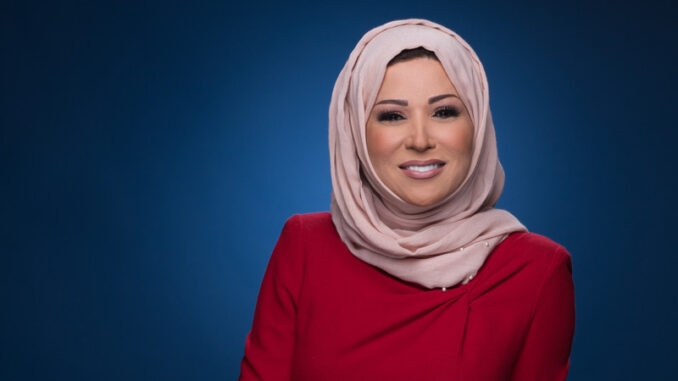
Khadija Benguenna, Algerian broadcaster, Al Jazeera satellite channel, born in 1965 in Algiers.
Biography and life story of celebrity in English.
Basic info wiki card
Name in English: Khadija Benguenna
Name in Arabic: خديجة بن قنة
Nationality: Algeria
Language: Arabic
Religion: Islam
Residence: Doha, Qatar
Origin: Algeria
Date of birth: 1965
Place of birth: Algeria, Algeria
Age: 57 years (in 2022)
Profession: Journalist, Broadcaster
Genre: News, Political Programs
Years of activity: 1986 – present
Social status: Married
Biography, Life story
Khadija Benguenna was born in 1965 in Algiers. She graduated from the Media Institute of the University of Algiers, Department of Radio and Television, and then attended the Louvre Institute for the Formation of Professional Journalists in Paris.
She started working in 1986 a journalist in Radio Algeria, and then moved to work on Algerian television as a broadcaster for the flagship bulletin at 8 p.m. Plus external coverage. She co-sponsored several political platforms. She went on to work on Switzerland World Radio as a news presenter and responsible for the weekly dossier that had been concerned with Switzerland’s Arab community for four years. She then served as a news presenter and talk show on Al Jazeera News in Doha, Qatar, since her founding in 1996.
Khadija Benguenna presented several political, religious and social programmes on Al Jazeera’s Al Jazeera Channel (for women only, for sharia and life, beyond the news). She also conducted numerous interviews with political and scientific figures and decision makers. It co-covered many hot events and wars such as the War on Afghanistan, the War on Iraq, the Lebanon War and the Second Palestinian Intifada.
It has been required since 2012 by the Military Intelligence Division of Syria and is included in the list of persons prohibited from entering Syria.
Awards and Honors
In 2014, Khadija Benguenna won the Medal of Excellence for the World’s Most Influential Media Personalities, during a vote launched by the International Council for Human Rights, Arbitration and Political and Strategic Studies.